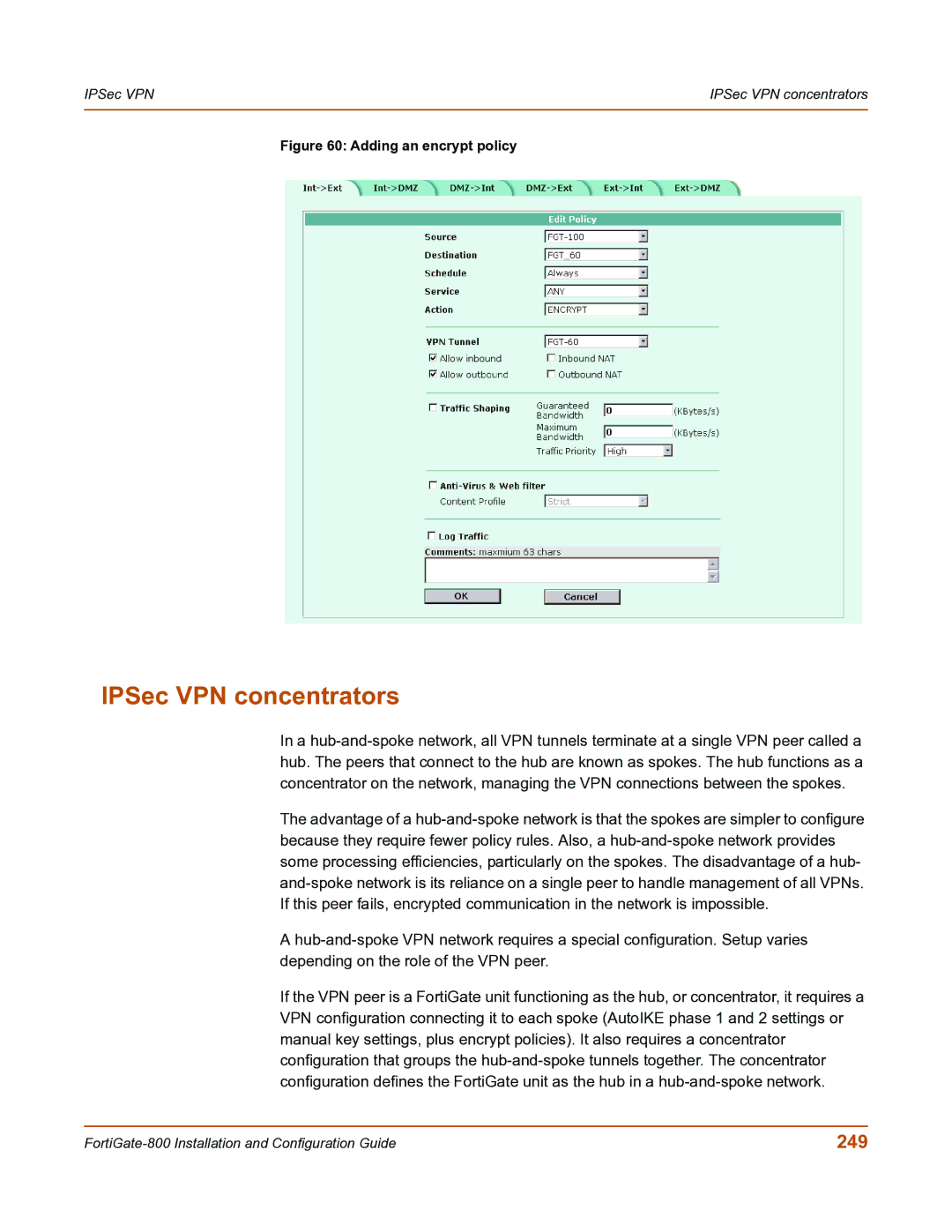
IPSec VPN | IPSec VPN concentrators |
|
|
Figure 60: Adding an encrypt policy
IPSec VPN concentrators
In a
The advantage of a
A
If the VPN peer is a FortiGate unit functioning as the hub, or concentrator, it requires a VPN configuration connecting it to each spoke (AutoIKE phase 1 and 2 settings or manual key settings, plus encrypt policies). It also requires a concentrator configuration that groups the
249 |
